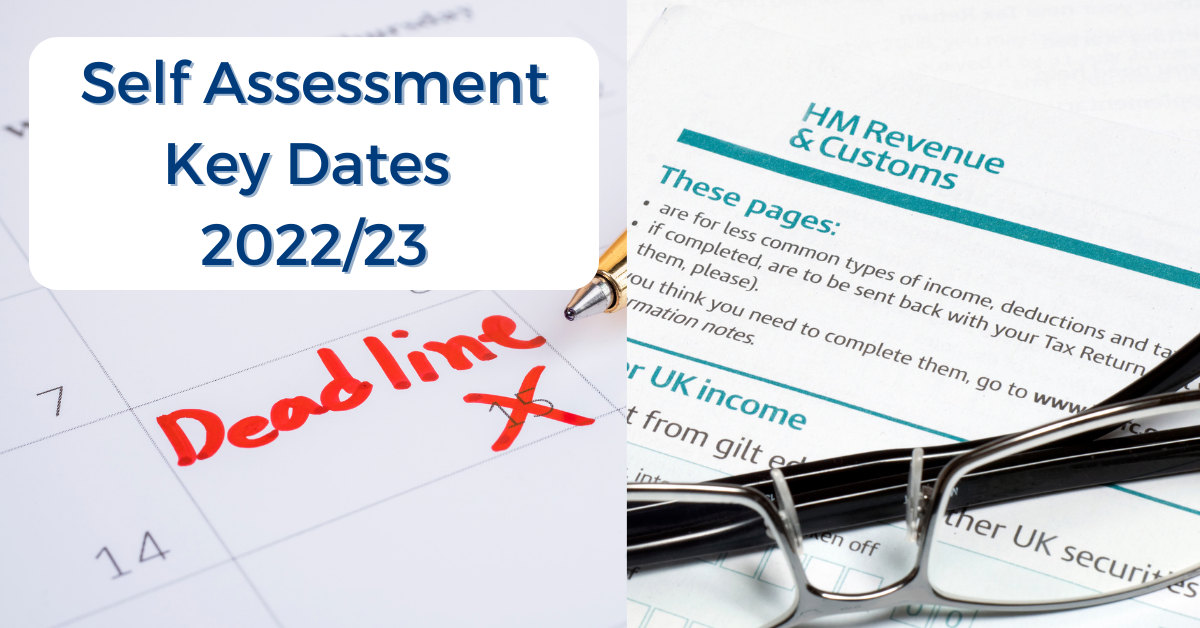Key Tax Dates 2022-2023 : Self Assessment Tax Returns
In this article we will cover the key tax dates for 2022-2023, for self assessment tax returns and tax payment dates. In addition to a reminder of the information required to prepare your tax return we provide a brief overview of the High Income Child Benefit Charge.
Key Tax Dates 2022-2023
The tax year runs from 6 April to 5 April.
- 31 July 2023
- The second payment on account for 2022/23 is due on 31 July 2023.
- Tax credit renewal date for reporting details of income for 2022/23
- 31 October 2023
- The deadline for filing paper self assessment tax returns.
- 30 December 2023
- Deadline for filing return to request tax to be collected via PAYE code. In certain circumstances, if tax liability for 2022/23 is less than £3000 a request can be made to HMRC to collect this through your wages or pension by adjusting your tax code for the tax year 2024/25.
- 31 January 2024
- The deadline for filing self assessment tax returns online
- Payment of tax and National Insurance tax due for 2022/23
- First payment on account for 2023/24 is due 31 January 2024
- Deadline for paying voluntary Class 2 National Insurance Contributions for 2022/23
- 31 July 2024
- The second payment on account for 2023/24 is due on 31 July 2024
Tax return information
Send us your accounting and tax return information in good time, well in advance of deadlines. Doing so will enable us to help you manage your cash flow, by giving you early warning of any tax payments due and to avoid any late filing penalties and interest.
- We send our clients a checklist of information required to prepare their tax returns.
Once you receive this please work through the checklist and provide us with your tax return documentation. For example, P60s, dividend vouchers, interest certificates, details of pension contribution, details of capital disposals and gift aid donations.
Also, please advise us of any changes in circumstances.
High Income Child Benefit Charge
Families receiving child benefit where at least one parent has “adjusted net income” of more than £50,000 are liable to a claw back of the child benefit. This is known as High Income Child Benefit Charge.
- If the individual’s income is over £60,000, all of the child benefit will be repayable.
- If the individual’s income is between £50,000 and £60,000, a portion will be repayable.
The charge will apply to the person with the higher income which may not necessarily be the person receiving the child benefit.
A self assessment tax return may need to be filed if the High Income Child Benefit charge applies.
Shaw Austin are a firm of Chartered Accountants based in Chester supporting independent business throughout the UK. We take the headache out of business accounting and taxation by providing our clients with a personal service.
This article includes tax rates and allowances correct on date of publishing – tax rates and allowances can change from year to year. This is a general article to assist readers. Professional advice should always be taken in respect of your personal circumstances.
Updated March 2023

